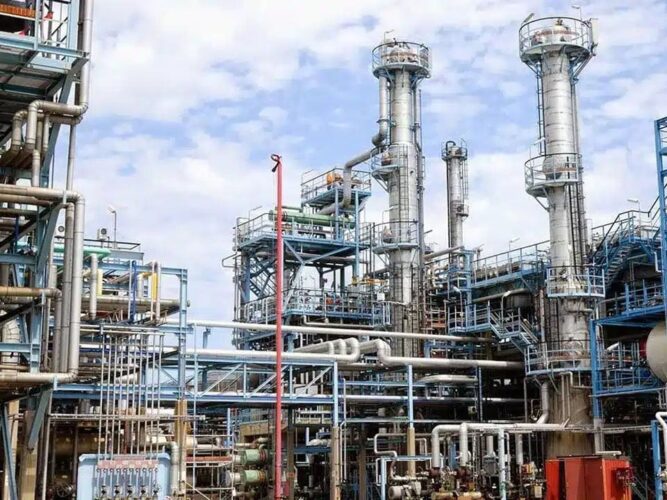The Port Harcourt refinery, with a capacity of 210,000 barrels per day, is expected to finally begin operations by the end of July after multiple delays. This new date was announced on Monday by Chief Ukadike Chinedu, the National Public Relations Officer of the Independent Marketers Association of Nigeria. He emphasized that the refinery's operation would boost economic activities, lower petroleum product prices, and ensure a steady supply.
In December of last year, Heineken Lokpobiri, the Minister of State for Petroleum Resources, reported the mechanical completion and flare start-off of the Port Harcourt refinery, the largest crude refinery in the area. The facility includes two units: an older plant with a capacity of 60,000 barrels per day and a new plant capable of refining 150,000 barrels per day.
The refinery ceased operations in March 2019 for the first phase of repairs after the government enlisted Italy’s Maire Tecnimont as a technical adviser, with oil major Eni also providing advisory services. On March 15, 2024, Mele Kyari, the Group Chief Executive Officer of NNPC Limited, stated that the refinery would be operational within two weeks, a timeline that was ultimately not met.
In an interview on Monday, Chief Ukadike highlighted the extensive turnaround efforts, noting that nearly all components had been replaced or refurbished. He assured that the refinery was nearly ready, with an expected start date by the end of July. Despite past delays, he stressed that the refinery was now 99 percent complete and faced no significant obstacles.
Ukadike also mentioned the importance of competition in the market, expressing confidence that the opening of both the Port Harcourt refinery and the upcoming Dangote Refinery would help reduce petrol prices. The Dangote Refinery is set to begin petrol production by the end of June, according to Aliko Dangote, Chairman of the Dangote Group. This development could eliminate Nigeria's need to import petrol, saving the government approximately N6.2 trillion annually on import costs, as the refinery is expected to meet the fuel demands of West Africa and beyond.









